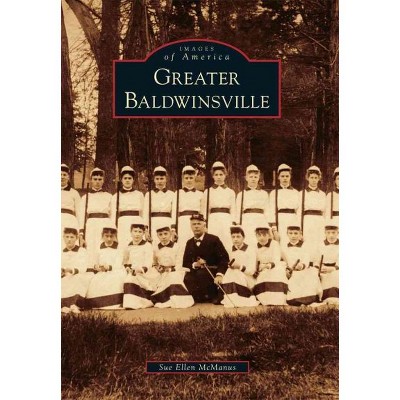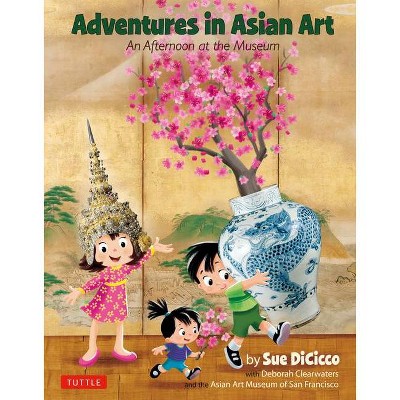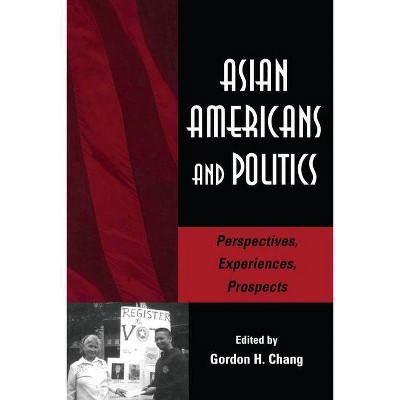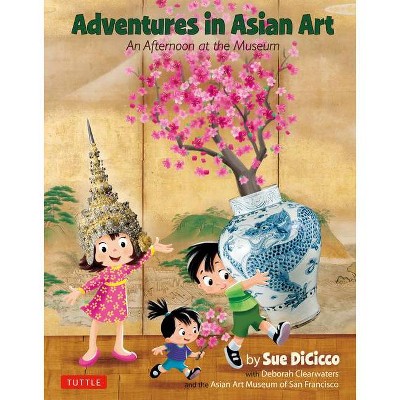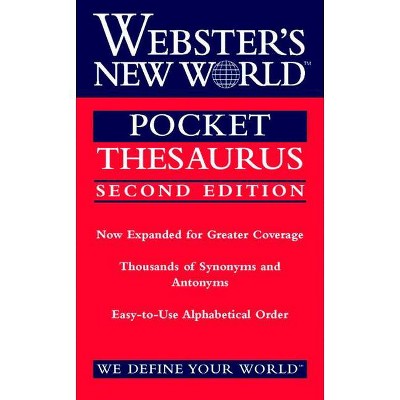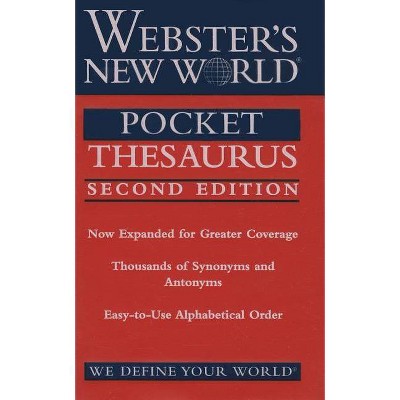Comparing Asian Politics - 4th Edition by Sue Ellen M Charlton (Paperback)
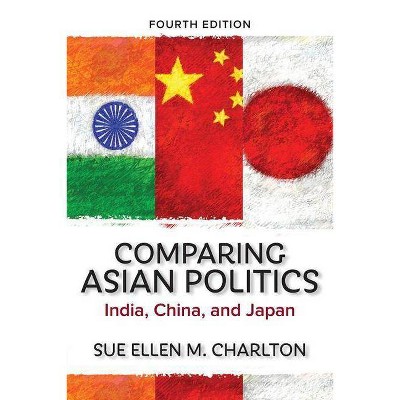
Similar Products
Products of same category from the store
AllProduct info
<p/><br></br><p><b> About the Book </b></p></br></br>This book presents an invaluable comparative examination of politics and government in three Asian nations: India, China, and Japan. The author elucidates the links between politics and each nation's distinctive cultural and historical contexts and demonstrates the intermingling and grafting of Asian traditions with the influence of Western values.<p/><br></br><p><b> Book Synopsis </b></p></br></br><p><em>Comparing Asian Politics</em> presents an invaluable comparative examination of politics and government in three Asian nations: India, China, and Japan. The author elucidates the links between politics and each nation's distinctive cultural and historical contexts and demonstrates the intermingling and grafting of Asian traditions with the influence of Western values and institutions. National identity, political cohesion, and socioeconomic change emerge as central to how politics has developed in each nation-state. Also included are focus boxes on political and social issues in other important countries in Asia. The book provides insight into topics such as the significance of constitutions in the political process; the parliamentary system in Asia; the regionalization of politics and the importance of levels of government; the decay of one-party rule; the links between development and democratization; and the impact of globalization. This essential text not only illuminates the politics of India, China, and Japan in relation to one another, it also suggests to readers how their own experience of politics can be informed by understanding the politics and government of these three Asian nations. In this new edition, the author includes a discussion on the recent political changes in China and the election of Xi Jinping in early 2013, the devastating earthquake and tsunami that hit Japan in 2011, and the recent elections in India.</p><p/><br></br><p><b> From the Back Cover </b></p></br></br>"Comparing Asian Politics" examines the politics and government in three Asian nations: India, China, and Japan. The author explains the links between politics and each nation s distinctive cultural and historical contexts and demonstrates the intermingling and grafting of Asian traditions with the influence of Western values and institutions. National identity, political cohesion, and socioeconomic change emerge as central to the way politics has developed in each nation-state. Political and social issues in other important countries in Asia are presented in focus boxes throughout the text. The book provides insight into topics such as the significance of constitutions in the political process; the parliamentary system in Asia; the regionalization of politics and the importance of levels of government; the links between development and democratization; and the impact of globalization. In this new edition, the author includes the background to the 2014 elections in India, recent political changes in China and the selection of Xi Jinping, preeminent leader, in 2012-2013, and the devastating earthquake and tsunami that hit Japan in 2011. <BR>"I believe [Comparing Asian Politics] strikes an excellent balance of breadth, with cases from East and South Asia that vary both in terms of political regimes and economic development, and depth, covering both historical and contemporary issues in each case and drawing explicit comparisons between the cases."<BR>Emily Beaulieu, University of Kentucky <BR>"The great appeal of Comparing Asian Politics for an undergraduate classroom is its truly comparative approach. With an engaging style, Charlton emphasizes important regional themes through interwoven case studies of three important Asian countries. She emphasizes historical and cultural contexts in her analysis of contemporary political dynamics and dilemmas. Consequently, readers see linkages between regional and national phenomena and patterns across timeexcellent training for the undergraduate students of politics."<BR>Kimberly Lanegran, Coe College <BR>Sue Ellen M. Charlton is professor emerita of political science at Colorado State University where she teaches courses in comparative politics and international development. Her most recent book is Women Navigating Globalization: Feminist Approaches to Development, co-authored with Jana Everett."<p/><br></br><p><b> Review Quotes </b></p></br></br><br>"This is a valuable resource for students studying Asian politics at the college level. It displays sensitivity to the influence of culture and history on contemporary politics, directs attention both to comparative analysis and the implications of globalization, and shows how the examination of Asian politics raises questions about Euro-American assumptions. Superb pictures, useful tables, and notes on books and films for further exploration enrich this well-written text."<br>--<b>Jana Everett, University of Colorado Denver</b> <p/>"The great appeal of <i>Comparing Asian Politics</i> for an undergraduate classroom is its truly comparative approach. With an engaging style, Charlton emphasizes important regional themes through interwoven case studies of three important Asian countries. She emphasizes historical and cultural contexts in her analysis of contemporary political dynamics and dilemmas. Consequently, readers see linkages between regional and national phenomena and patterns across time--excellent training for the undergraduate students of politics."<br>--<b>Kimberly Lanegran, Coe College</b><br><br>Praise for the fourth edition: <p/>"All in all, this is a good textbook on Asian politics..."<br>--<b>Timothy Lomperis, Saint Louis University</b> <p/>"The organization and approach of the book are excellent and the book stands out for this reason."<br>--<b>Nicole Freiner, Bryant University</b> <p/>"I don't know of another book that compares India, China, and Japan using a qualitative analytical frame and that takes up issues of socio-economic development."<br>--<b>Pamela Mason, John Carroll University</b> <p/>"I believe it strikes an excellent balance of breadth, with cases from East and South Asia that vary both in terms of political regimes and economic development, and depth, covering both historical and contemporary issues in each case and drawing explicit comparisons between the cases."<br>--<b>Emily Beaulieu, University of Kentucky</b> <p/>"I do not believe there is anything comparable on the market--it fills a valuable niche and I am very pleased that there will soon be an updated edition."<br>--<b>Jean Abshire, Indiana University Southeast</b> <p/>Praise for prior editions:<br><br>Praise for the fourth edition: <br>"All in all, this is a good textbook on Asian politics..."<br>--<b>Timothy Lomperis, Saint Louis University</b> <br>"The organization and approach of the book are excellent and the book stands out for this reason."<br>--<b>Nicole Freiner, Bryant University</b> <br>"I don't know of another book that compares India, China, and Japan using a qualitative analytical frame and that takes up issues of socio-economic development."<br>--<b>Pamela Mason, John Carroll University</b> <br>"I believe it strikes an excellent balance of breadth, with cases from East and South Asia that vary both in terms of political regimes and economic development, and depth, covering both historical and contemporary issues in each case and drawing explicit comparisons between the cases."<br>--<b>Emily Beaulieu, University of Kentucky</b> <br>"I do not believe there is anything comparable on the market--it fills a valuable niche and I am very pleased that there will soon be an updated edition."<br>--<b>Jean Abshire, Indiana University Southeast</b> <br>Praise for prior editions:<br><br>Praise for the fourth edition: <BR>"All in all, this is a good textbook on Asian politics"<BR>Timothy Lomperis, Saint Louis University <BR>"The organization and approach of the book are excellent and the book stands out for this reason."<BR>Nicole Freiner, Bryant University <BR>"I don t know of another book that compares India, China, and Japan using a qualitative analytical frame and that takes up issues of socio-economic development."<BR>Pamela Mason, John Carroll University <BR>"I believe it strikes an excellent balance of breadth, with cases from East and South Asia that vary both in terms of political regimes and economic development, and depth, covering both historical and contemporary issues in each case and drawing explicit comparisons between the cases."<BR>Emily Beaulieu, University of Kentucky <BR>"I do not believe there is anything comparable on the marketit fills a valuable niche and I am very pleased that there will soon be an updated edition."<BR>Jean Abshire, Indiana University Southeast <BR>Praise for prior editions: <BR>"This is a valuable resource for students studying Asian politics at the college level. It displays sensitivity to the influence of culture and history on contemporary politics, directs attention both to comparative analysis and the implications of globalization, and shows how the examination of Asian politics raises questions about Euro-American assumptions. Superb pictures, useful tables, and notes on books and films for further exploration enrich this well-written text."<BR>Jana Everett, University of Colorado Denver <BR>"The great appeal of "Comparing Asian Politics" for an undergraduate classroom is its truly comparative approach. With an engaging style, Charlton emphasizes important regional themes through interwoven case studies of three important Asian countries. She emphasizes historical and cultural contexts in her analysis of contemporary political dynamics and dilemmas. Consequently, readers see linkages between regional and national phenomena and patterns across timeexcellent training for the undergraduate students of politics."<BR>Kimberly Lanegran, Coe College <BR> For those of us tasked with teaching the introduction to Asian politics course, finding the right book is always a struggle. This third edition of Charlton s "Comparing Asian Politics" is the answer Its focus on the big three, India, China and Japan, with both individual and comparative themes, is just right . It is well written and up to date. I highly recommend it for any introduction to Asian politics course. <BR>Ronald J. Hrebenar, University of Utah <BR>"India, China, and Japan, three countries with three very different political systems representing over one third of the Earth's population, are brought together in one text that methodically and comparatively explores each state. Professor Charlton presents a historically based political and cultural analysis that is the essence of comparative politics."<BR>Dr. Kevin J. Cooney, Department of Political Science, Arizona State University <BR>"By highlighting issues not typically raised in comparative politics texts, Charlton has provided us with a novel approach to Asian politics. Putting gender issues, environmental concerns, and ethnic divisions on center stage enables students to see ways in which Asian societies are maintaining their connection to the past while forging into the future. A singular and important new textbook for all who teach Asian and Pacific Rim courses."<BR>Jean C. Robinson, Indiana University"<br><br>Praise for prior editions: <BR>"This is a valuable resource for students studying Asian politics at the college level. It displays sensitivity to the influence of culture and history on contemporary politics, directs attention both to comparative analysis and the implications of globalization, and shows how the examination of Asian politics raises questions about Euro-American assumptions. Superb pictures, useful tables, and notes on books and films for further exploration enrich this well-written text."<BR>--Jana Everett, University of Colorado Denver <BR>"The great appeal of "Comparing Asian Politics" for an undergraduate classroom is its truly comparative approach. With an engaging style, Charlton emphasizes important regional themes through interwoven case studies of three important Asian countries. She emphasizes historical and cultural contexts in her analysis of contemporary political dynamics and dilemmas. Consequently, readers see linkages between regional and national phenomena and patterns across time--excellent training for the undergraduate students of politics."<BR>--Kimberly Lanegran, Coe College <BR>"For those of us tasked with teaching the introduction to Asian politics course, finding the right book is always a struggle. This third edition of Charlton's "Comparing Asian Politics" is the answer... Its focus on the big three, India, China and Japan, with both individual and comparative themes, is just right... . It is well written and up to date. I highly recommend it for any introduction to Asian politics course."<BR>--Ronald J. Hrebenar, University of Utah <BR>"India, China, and Japan, three countries with three very different political systems representing over one third of the Earth's population, are brought together in one text that methodically and comparatively explores each state. Professor Charlton presents a historically based political and cultural analysis that is the essence of comparative politics."<BR>--Dr. Kevin J. Cooney<br><p/><br></br><p><b> About the Author </b></p></br></br><b>Sue Ellen M. Charlton</b> is professor emerita of political science at Colorado State University where she teaches courses in comparative politics and international development. Her most recent book is <i>Women Navigating Globalization: Feminist Approaches to Development</i>, co-authored with Jana Everett.
Price History
Cheapest price in the interval: 49.95 on October 27, 2021
Most expensive price in the interval: 49.95 on December 10, 2021
Price Archive shows prices from various stores, lets you see history and find the cheapest. There is no actual sale on the website. For all support, inquiry and suggestion messagescommunication@pricearchive.us
